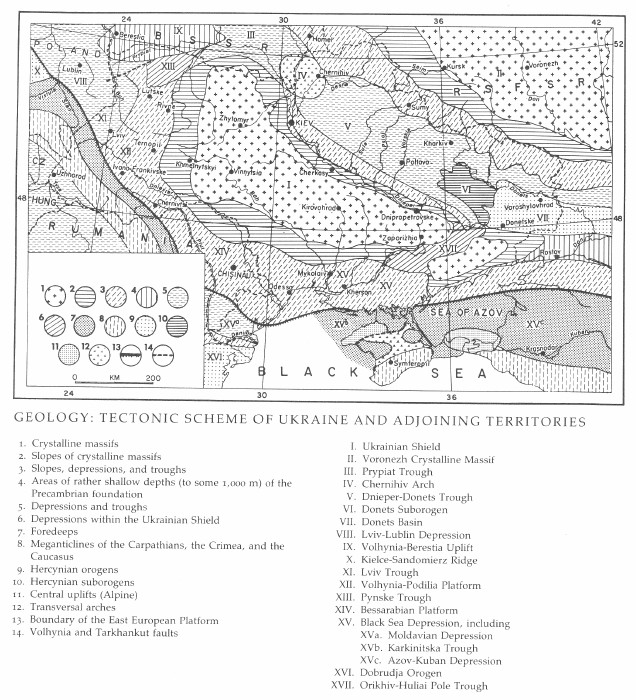Dnipro-Donets Trough
Dnipro-Donets Trough (Дніпровсько-Донецька западина; Dniprovsko-Donetska zapadyna). A synclinal geological structure that lies between two crystalline massifs—the Voronezh Massif in the northwest and the Ukrainian Crystalline Shield in the southwest. In the northwest the trough extends to the middle Prypiat River, in the southeast to the Donets Ridge. The Dnipro-Donets Trough merges with the Dnipro Lowland and the Polisia Lowland. Its width is 80–150 km. The trough was formed by a stepped settling of the crystalline foundation, which consists of thick sedimentary strata from various periods (Devonian, Carboniferous, Permian, Triassic, Jurassic [see Jurassic Period], Cretaceous, Paleogene, Neogene, Anthropogene). The lowest part of the trough, which is located in the Poltava–Chutove–Krasnohrad region, is known as the Dnipro Trench. The thickness of the sedimentary complex is 11 km. The Dnipro-Donets Trough began to form in the Devonian period, and the process continued to the beginning of the Paleogene.
The Dnipro-Donets Trough is the most important oil- and gas-producing area in Ukraine (see Petroleum industry; Natural gas industry). Its mineral resources include rock salt, gypsum (in the Devonian and Permian strata), phosphorites, various building materials, and anthracite coal.
[This article originally appeared in the Encyclopedia of Ukraine, vol. 1 (1984).]
